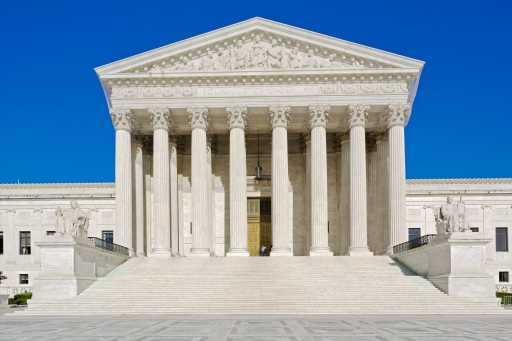Supreme Court Rules Race Can’t Be A Factor In College Admissions In Decision That Sharply Limits Affirmative Action
The Supreme Court ruled that colleges and universities who consider race as a factor in admissions violate the equal protection clause of the Constitution.
The 6-3 decision (read it here) likely will be one of the court’s most consequential rulings this term. Major broadcast networks interrupted regular programming to report on the ruling, while cable news networks had been anticipating the decision as the term nears its end.
The court was rendering judgement on the college admissions programs of Harvard and the University of North Carolina.
Related Story
Supreme Court Rejects Theory That Would Have Given State Legislatures Nearly Unchecked Power Over Rules For Federal Elections
In the majority opinion, Chief Justice John Roberts wrote, “Both programs lack sufficiently focused and measurable objectives warranting the use of race, unavoidably employ race in a negative manner, involve racial stereotyping, and lack meaningful end points. We have never permitted admissions programs to
work in that way, and we will not do so today. At the same time, as all parties agree, nothing in this
opinion should be construed as prohibiting universities from considering an applicant’s discussion of how race affected his or her life, be it through discrimination, inspiration, or otherwise.”
In her dissent, Justice Sonia Sotomayor wrote, “Today, the Court concludes that indifference to race is the only constitutionally permissible means to achieve racial equality in college admissions. That interpretation of the Fourteenth Amendment is not only contrary to precedent and the entire teachings of our history … but is also grounded in the illusion that racial inequality was a problem of a different generation. Entrenched racial inequality remains a reality today.”
She added, “Ignoring race will not equalize a society that is racially unequal. What was true in the 1860s, and again in 1954, is true today: Equality requires acknowledgement of inequality.”
Justice Ketanji Brown Jackson wrote, “With let-them-eat-cake obliviousness, today, the majority pulls the ripcord and announces ‘colorblindness for all’ by legal fiat. But deeming race irrelevant in law does not make it so in life.”
But Roberts argued that the race-based admissions programs were misguided.
He wrote, “A benefit to a student who overcame racial discrimination, for example, must be tied to that student’s courage and determination. Or a benefit to a student whose heritage or culture motivated him or her to assume a leadership role or attain a particular goal must be tied to that student’s unique ability to contribute to the university. In other words, the student must be treated based on his or her experiences as an individual—not on the basis of race.”
“Many universities have for too long done just the opposite. And in doing so, they have concluded, wrongly, that the touchstone of an individual’s identity is not challenges bested, skills built, or lessons learned but the color of their skin. Our constitutional history does not tolerate that choice.”
Justice Clarence Thomas, in a concurring opinion, wrote, that the majority decision “sees the universities’ admissions policies for what they are: rudderless, race-based preferences designed to ensure a particular racial mix in their entering classes. Those policies fly in the face of our colorblind Constitution and our Nation’s equality ideal.”
The decision was not a surprise, and the court’s conservative majority appeared to be skeptical of the affirmative action programs in oral arguments.
President Joe Biden plans to deliver remarks on the decision at 12:30 p.m. ET/9:30 a.m. PT.
Must Read Stories
Int’l Acting Guilds Proceed With Caution Over Potential SAG-AFTRA Strike
“Prepared To Strike” Letter Hits 1,000 Signatures; Guild’s Fran Drescher Aboard
Leslye Headland To Helm ‘Seven Husbands Of Evelyn Hugo’ Adaptation For Netflix
Netflix Signs Five-Year Deal With Cannes Award Winner Yuji Sakamoto
Read More About:
Source: Read Full Article





